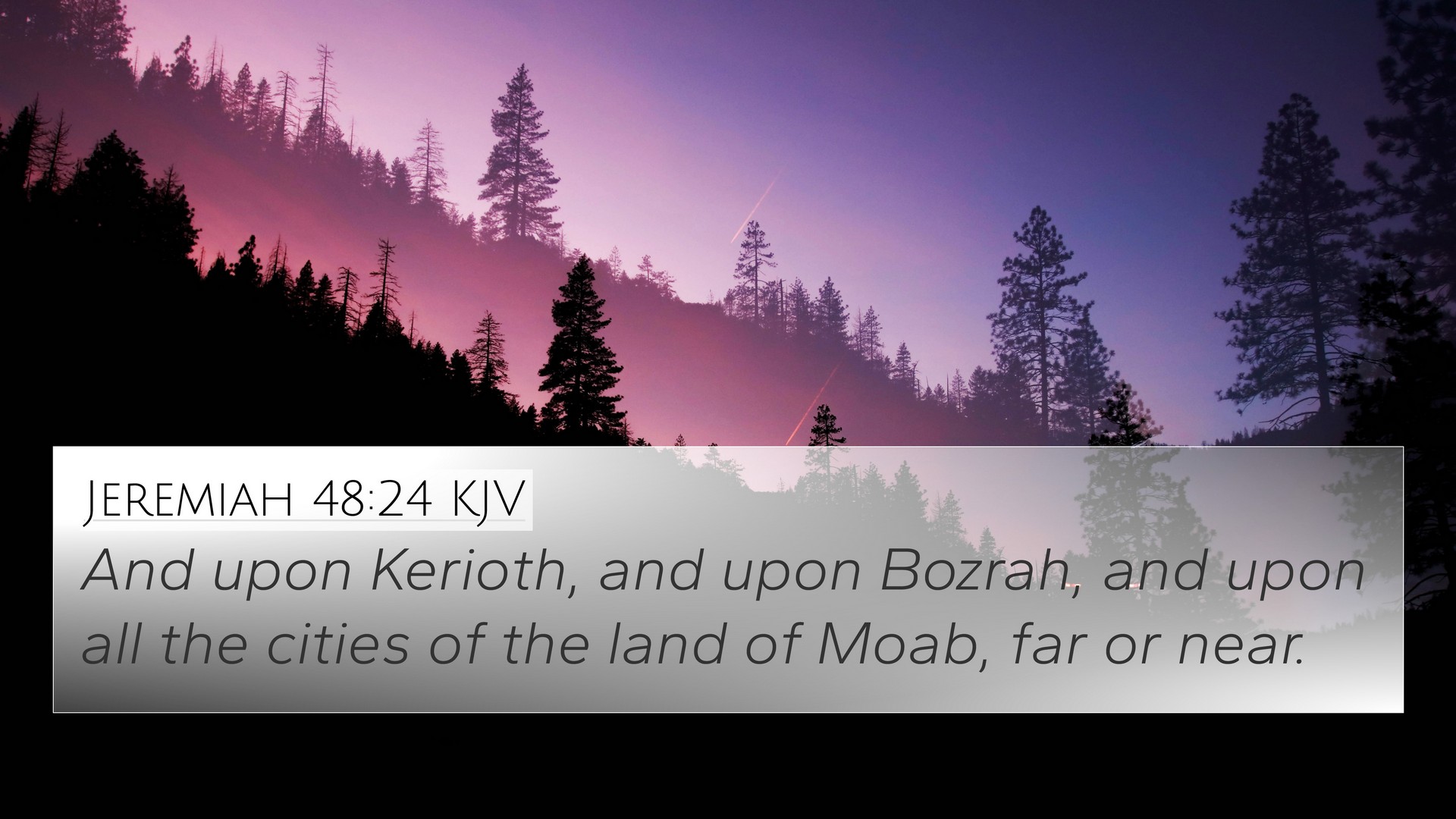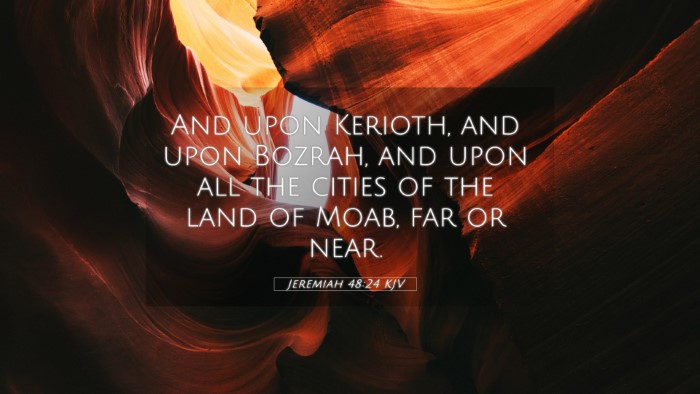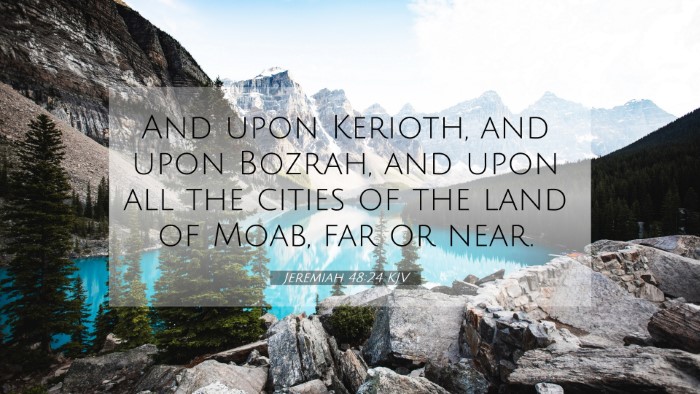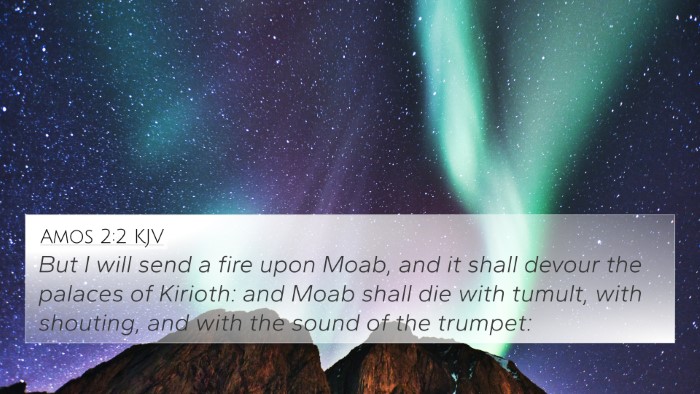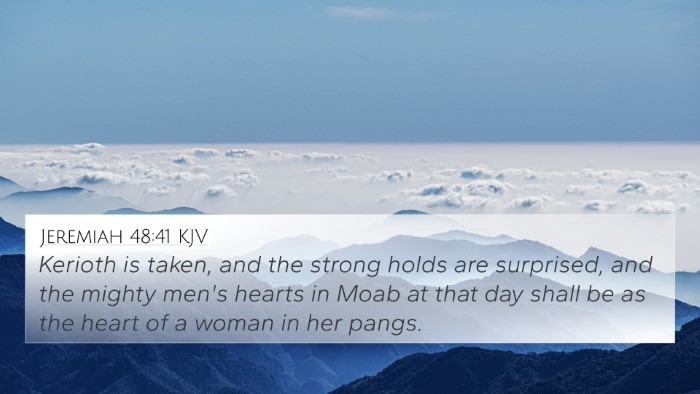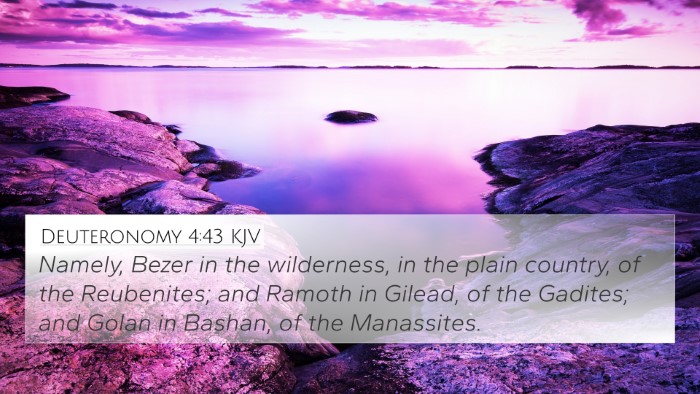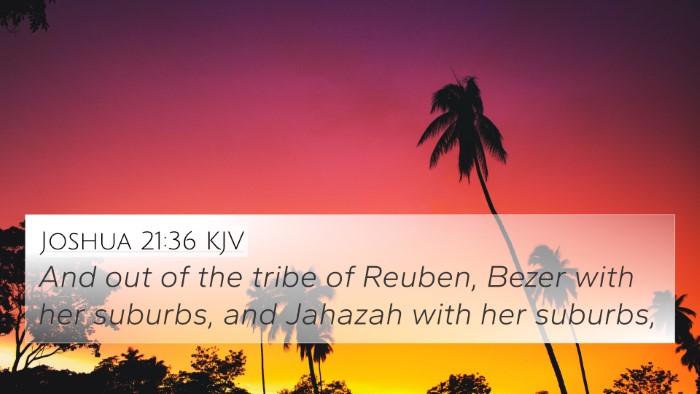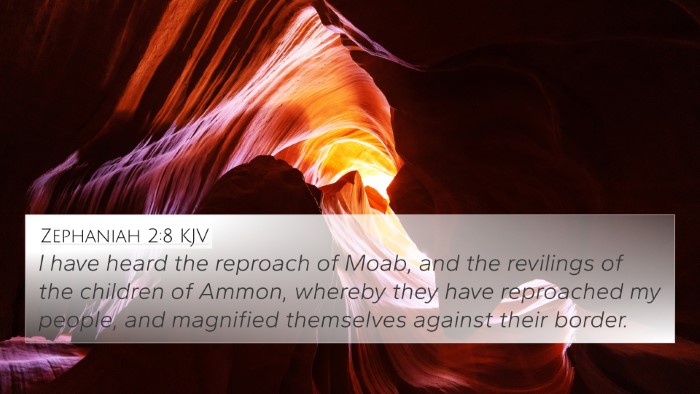Understanding Jeremiah 48:24
Jeremiah 48:24 is a verse that highlights God's judgment on the nation of Moab and signifies the consequences of sin and rebellion against God. In this verse, concern for the fate of Moab is revealed, and the prophet Jeremiah poignantly expresses the severity of the situation facing this people.
Verse Overview
This verse mentions the cities of Moab that are destined for destruction, emphasizing the futility that comes as a result of their denial of God and unfaithfulness. The prophet Jeremiah delivers this message amidst a broader context of judgment and prophecy regarding the nations surrounding Israel.
Commentary Insights
- Matthew Henry's Commentary: Henry notes that God's judgment is both just and necessary, coming as a result of Moab's pride and idolatry. He underscores that the fall of their cities signifies a loss of protection and lineage, which relates to the spiritual ramifications of their actions.
- Albert Barnes' Commentary: Barnes emphasizes the inevitability of divine retribution portrayed in Jeremiah’s prophecy. He points out that the cities mentioned have become symbols of calamity, demonstrating that no nation is exempt from judgment, especially those who turn away from God.
- Adam Clarke's Commentary: Clarke expands on the historical significance of Moab, explaining that their past alliances and enmities have led to their downfall. His interpretation often reflects on the future hope of Israel amidst the backdrop of Moab's destruction, weaving a narrative of redemption and justice.
Parallel Scriptures
The message of Jeremiah 48:24 is complemented by several other scriptures which align thematically or contextually:
- Isaiah 15:1-9: A passage that outlines the destruction of Moab and serves as a parallel to Jeremiah’s prophecy.
- Jeremiah 9:1-11: This passage reflects on God’s sorrow over the fate of His people and their sinfulness, drawing a line to the broader distress felt in Jeremiah 48.
- Amos 2:1-3: Discusses God's judgment upon nations due to their transgressions, linking judgment themes across different times.
- Zephaniah 2:8-10: Provides further insight into the fate of the Moabites and the reasons for their judgment.
- Ezekiel 25:8-11: A discourse on God's judgment against Moab, giving us a clearer understanding of the sin that leads to destruction.
- Psalm 60:8: References Moab as a washbasin, symbolizing its low status and impending doom, correlating with Jeremiah's view of the nation.
- Romans 11:22: Although a New Testament text, this verse serves as a reminder of the goodness and severity of God, resonating with the themes presented in Jeremiah.
Connections Between Themes
The themes in Jeremiah 48:24 of judgement, sin, and hope are not isolated. They connect with various passages across both the Old and New Testaments:
- Repentance and Restoration: Scriptures such as 2 Chronicles 7:14 highlight the conditions for God's forgiveness which was lacking in Moab.
- God’s Sovereignty: Throughout the Bible, the sovereignty of God is communicated, noting that He rules over every nation — this is important for understanding the context of Jeremiah's prophecies, including 1 Chronicles 29:11.
- The Nature of Idolatry: Passages like Deuteronomy 6:14 warn against the pitfalls of turning to idols, which Moab exemplified.
Thematic Bible Verse Connections
The message in Jeremiah resonates with many theological ideas and themes in the Bible, including:
- The Wrath of God: Connected to passages like Romans 1:18, which speaks about God's revelation against ungodliness.
- Hope for the Remnant: While judgment is the theme of Moab's story, passages like Isaiah 10:20 remind us that those who turn back to God shall be saved.
- Unity amongst Nations: The relationship between nations and God, such as in Psalm 22:27 where all nations will turn to the Lord.
Cross-referencing Biblical Texts
Using tools for Bible cross-referencing can illuminate how Jeremiah 48:24 connects with the broader biblical narrative. This methodology enables a richer understanding of scriptures and enhances one’s study experience. Below are some strategies:
- Bible Concordance: Find specific words in Jeremiah to connect to key themes or parallel verses.
- Bible Cross-Reference Guide: These guides help in identifying passages that share thematic or narrative similarities.
- How to Use Bible Cross-References: Study how different verses interact through shared vocabulary or themes, such as judgment or redemption.
Conclusion
Jeremiah 48:24 carries significant weight in understanding God's interaction with nations and His expectations of righteousness. Through comparative Bible verse analysis and thematic connections, a deeper insight into God's nature can be revealed, allowing for a holistic grasp of scriptural truths.
